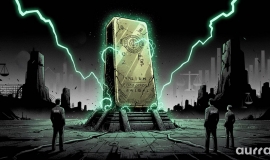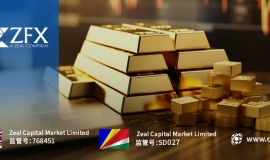Register now, make more friends, enjoy more functions, and let you play in the community easily.
You need Sign in Can be downloaded or viewed without an account?Register Now 
x
IoptionDefinition of
Option refers to the right that can be bought and sold in a certain period of time in the future. It is the right that the buyer has to pay a certain amount of money (referring to the premium) to the seller, and has the right to purchase (referring to a call option) or sell (referring to a put option) a certain amount of specific subject matter from the seller at a predetermined price (referring to the strike price) for a certain period of time in the future (referring to an American option) or a specific date in the future (referring to a European option), but without the obligation to buy or sell. Option trading is actually the trading of such rights. The buyer has both the right to execute and the right not to execute, and can choose flexibly.
2、 Basic factors of option contracts
The so-called option contract refers to the situation where the option buyer pays a certain amount of premium to the option seller, and then obtains the right to buy or sell a certain quantity of related goods at a predetermined price within a specified period of timefuturesA standardized contract of contractual rights, the constituent elements of an option contract mainly include the buyer, seller, premium, strike price, notice, and expiration date.
3、 Types of options
1Call options, put options, and two-way options
According to the rights of options, there are mainly three types: call options, put options, and two-way options.
(1)Call options. The so-called call option refers to the right of the buyer of the option to buy a specific quantity of related commodity futures contracts at a specific strike price within the specified validity period, but not at the same time having the obligation to buy.
(2)Put options. The so-called put option refers to the right of the buyer of the option to sell a specific quantity of related commodity futures contracts at a specific strike price within the specified validity period, but not simultaneously obligated to sell.
(3)Bidirectional options. The so-called two-way option refers to the right of the buyer of the option to buy a specific quantity of related commodity futures contracts at a specific strike price within the specified validity period, and to sell a specific quantity of related commodity futures contracts at the same strike price within the agreed validity period.
4、 Exercise of options
There are three types of options that can be exercised:
1Both buyers and sellers can fulfill their obligations through hedging.
2The buyer can also exercise the option by converting it into a futures contract (obtaining a corresponding futures position at the strike price level specified in the option contract).
3Any option that expires without use will automatically expire. If the option is undervalued, the option buyer will not exercise the option until it expires. In this way, the option buyer will lose at most the premium paid.
5、 Option premium
As mentioned earlier, option premium refers to the price at which an option contract is purchased or sold. For option buyers, in order to obtain certain rights granted by the option, they must pay a premium to the option seller; For the seller of an option, they sell the option and assume the obligation to fulfill the option contract, for which they receive a premium as compensation. Due to the fact that the premium is borne by the buyer and is the highest amount of loss that the buyer needs to bear in the event of the most unfavorable changes, the premium is also known as "insurance premium".
6、 Principles of Option Trading
Buying a call option with a fixed price, after paying a small premium, gives you the right to buy related futures. Once the price really rises, exercise the call option, take a long position in the futures at a low price, and then sell the relevant futures contracts at a high price based on the rising price level to obtain a profit from the price difference. After compensating for the premium paid, there is still profit to be made. If the price not only does not rise but also falls, the call option can be abandoned or transferred at a low price, with the maximum loss being the premium. The reason why the buyer of a call option buys a call option is because, through analysis of the price changes in the relevant futures market, it is determined that there is a high possibility of a significant increase in the price of the relevant futures market. Therefore, he buys a call option and pays a certain amount of premium. Once the market price really rises significantly, he will gain a larger profit by buying futures at a lower price, which is greater than the amount of premium he pays for buying the option, and ultimately make a profit. He can also sell the option contract at a higher premium price in the market to hedge the profit. If the buyer of a call option is not accurate in judging the trend of price changes in the relevant futures market, on the one hand, if the market price only rises slightly, the buyer can exercise or hedge, obtain some profit, and make up for the loss of premium expenses; On the other hand, if the market price drops, the buyer fails to fulfill the contract, and their maximum loss is the amount of royalties paid.
7、 The relationship between option trading and futures trading
There are both differences and connections between option trading and futures trading. The connection is that, firstly, both are transactions characterized by standardized contracts for buying and selling forwards; Secondly, in terms of price relationship, the futures market price has an impact on the strike price of option trading contracts and the determination of premiums. Generally speaking, the strike price for option trading is based on the delivery price of similar commodities for forward buying and selling determined by futures contracts, and the difference between the two prices is an important basis for determining the premium; Thirdly, futures trading is the basic trading of options, and the content of the trading is generally the right to buy or sell a certain number of futures contracts. The more developed futures trading is, the more fundamental the development of option trading is. Therefore, the mature development and complete rules of the futures market are the foundation for the emergence and development of option trading
Created conditions. The emergence and development of option trading have provided more optional tools for hedgers and speculators to engage in futures trading, thereby expanding and enriching the scope of futures trading |
"Small gifts, come to Huiyi to support me"
No one has offered a reward yet. Give me some support
|


